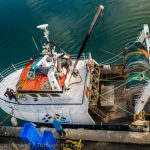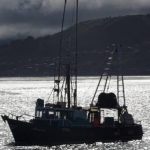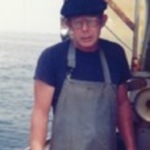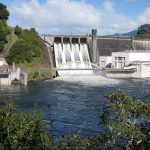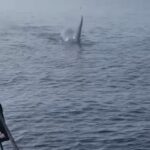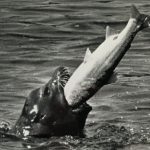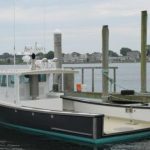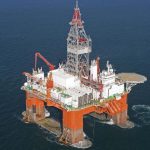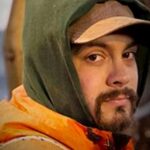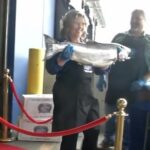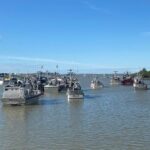Tag Archives: fish farms
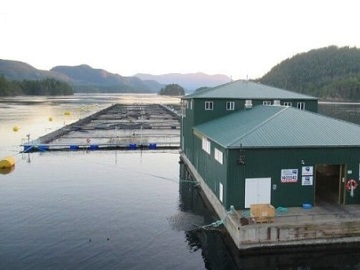
Canada Shuts Down 15 Fish Farms in B.C., Citing Risks to Wild Salmon
After years of concerns over the impact of aquaculture on wild sockeye salmon, Canada’s fisheries department has decided not to renew the operating permits of 15 Atlantic salmon farms in an environmentally sensitive area of British Columbia. In a news release, Fisheries Minister Joyce Murray noted that B.C.’s salmon runs are in “serious, long-term decline,” and some are at risk of collapse if action is not taken. Ten years have passed since the Cohen commission’s report, and more recent research indicates that the diseases associated with salmon-farming may have an impact on wild salmon in general and on Fraser River salmon smolts in particular. >click to read< 16:00
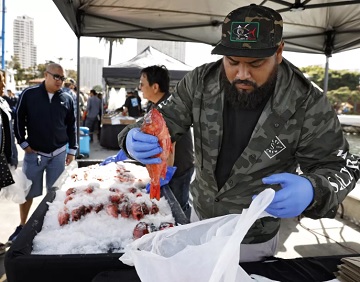
Biden needs to help California fishermen in our dispute over dangerous fish farms
When people think of California, they think of our coasts. Our vibrant ocean sustains a robust seafood industry, as well as many hospitality, tourism and recreation businesses. But in recent years, our coastal enterprises have faced a litany of challenges; pollution, climate change and development along the coast have made it difficult for independent businesses to survive. Now in 2023, another threat is looming: The National Oceans and Atmospheric Administration is scoping out Southern California as a new site for industrial-scale finfish farms. Last spring, NOAA identified 10 Aquaculture Opportunity Areas off the coast of Southern California. These areas are deemed ideal for offshore fish farms, despite the fact that two of them are in close proximity to a Superfund site where 500,000 barrels of the banned pesticide DDT were dumped. >click to read< 10:00
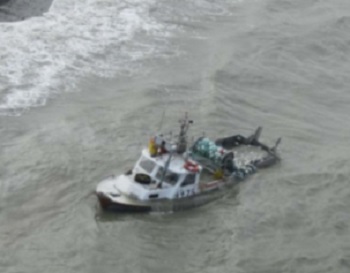
A troubled business
The size of the letters in the handwriting on the wall for the Alaska commercial salmon industry just keep getting bigger. Only days after the Bristol Bay sockeye harvest began with processors offering $1 per pound for some of Alaska’s best salmon, Atlantic Sapphire announced it had raised another $100 million-plus in capital to expand its land-based salmon farm in Homestead, Fla. Fish Farmer magazine reported that planned increases in a wealth tax imposed on private fish farmers in Norway helped push considerable Norwegian investment toward the company, but it is becoming increasingly clear that taxes or not there is strong investor belief in the idea that land-based, recirculating aquaculture systems are the salmon production method of the future despite the startup problems some of those farms have faced. >click to read< 10:55
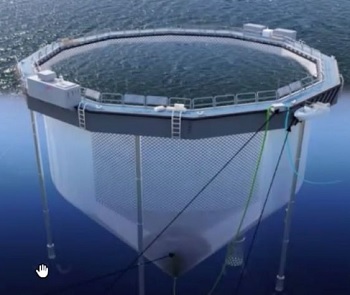
4 years later, the 4 large fish farms planned for Maine haven’t started construction
This year will be remembered in Maine, at least in part, as when interest in developing four large-scale fish farms on the state’s eastern coastline continued to intensify. It also will be remembered by some as yet another year during which, nearly four years since plans for the first proposal were announced, none of the four separate projects began construction. The projects are at various stages of the permitting process, with some being fully approved and others not yet having any permits. All have shied away from announcing specific timetables for when they hope to start to build. Nordic Aquafarms, Kingfish Maine, American Aquafarms, and Whole Oceans, >click to read< 10:39
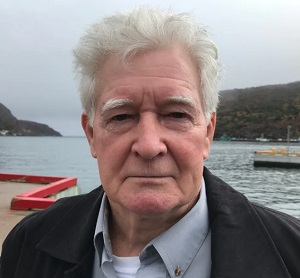
‘A reckless approach to regulation’ – Aquaculture critic presses for answers after another salmon die-off
More than 90,000 salmon being farmed in an open-net aquaculture pen on Newfoundland’s south coast died over the weekend, the Department of Fisheries, Forestry and Agriculture announced in a media release Saturday. The event occurred at a site known as “the gorge,” which is operated by Mowi’s Marine Harvest Atlantic Canada, and was caused by “sudden low dissolved oxygen levels.” The dead fish have been removed from the site. The release said mitigation measures, including deeper nets and aeration equipment, “improved survivability” during the die-off. Friday’s die-off was only the latest in a series of mortality events on Mowi-owned aquaculture farms, White noted. >click to read< 12:40
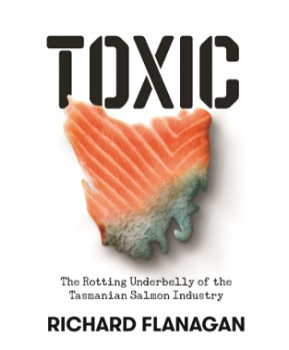
Tasmanian fish farms wreck pristine wilderness area’s, producing a toxic product we believe healthy
Enlightenment is dawning, but very slowly.,,, The latest shock is the discovery that a staple of the Australian diet, fresh salmon, is not as healthy as we hoped, but terribly polluted. We are told it is rich in essential fatty acids like Omega-3, anti-oxidants, vitamins and minerals. But there is something fishy about this succulent, pink delicacy. Most salmon consumed here is non-native Atlantic salmon, farmed in the warming waters off Tasmania, and a Tasmanian has lifted the lid on the can of worms. Novelist Richard Flanagan’s latest book, Toxic, subtitled The Rotting Underbelly of the Tasmanian Salmon Industry, leaves a nasty taste but makes compelling reading. >click to read< 13:03
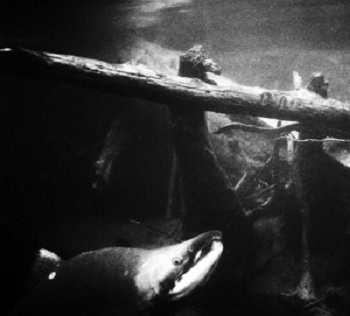
A virus that flourishes in fish farms is now threatening wild populations.
Wild salmon in British Columbia are in trouble. According to one estimate, some populations have dropped by as much as 93 percent since the early 1990s. Lately, the situation has grown dire.,, Last year, the number of sockeye returning to spawn in the Fraser River crashed to a record low. It’s hard to say exactly why this is happening, though logging, climate change, and overfishing all seem to play a role. Among the most controversial potential factors, however, is the virus Piscine orthoreovirus, or PRV. The virus isn’t necessarily fatal, but infected fish may be weakened and unable to swim as fast, making them more likely to be eaten by predators or fail to migrate upriver in order to spawn,,, Not everyone agrees. Among the dissenters is Fisheries and Oceans Canada-DFO,,, >click to read< Killing Sea Lions to Save the Salmon, February 1,1925, Dorothy G. Bell, >click to read< 19:39
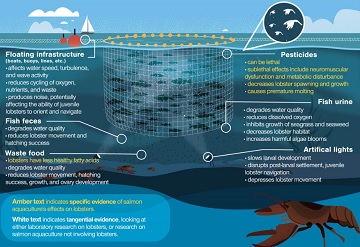
How Might Fish Farms Be Affecting the Lobster? Let us count the ways.
“There is a tremendous amount of waste generated by fish farms,” Milewski says. “I don’t think people have a sense of the scale.” A fairly typical farm of about 600,000 fish will generate around 40 tonnes of waste every month during its 22-month production cycle. “It’s understandable how that waste can change lobsters’ behavior, distribution, and abundance,” she adds. But the review also identified serious gaps in our understanding of the interactions between aquaculture operations and lobsters. While some aspects, such as the use of chemical pesticides, have been well studied, information on others, including waste discharges, disease, and noise, are limited or entirely lacking. >click to read< 11:02
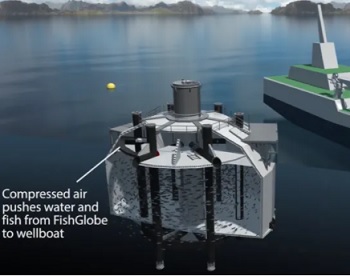
The last cowboys – a replay of the story of cattle in the American West
Norway, a country less than a quarter the size of Alaska, is on pace to bring 1.2 million tonnes of salmon to market this year, and the technologists in that country are talking about the potential to grow their production to 3 million tonnes per year by 2030. Chile, Scotland, the Faroe Islands, and Canada are all significant producers with lesser production in Australia, New Zealand, Iceland, France, Ireland and Finland. Meanwhile, land-based, recirculating aquaculture systems (RAS) farms are threatening to lead to an explosion in salmon aquaculture almost everywhere. To truly understand the threat these farmers pose to the future of one of Alaska’s oldest and still largest industries,,, >click to read< 08:52
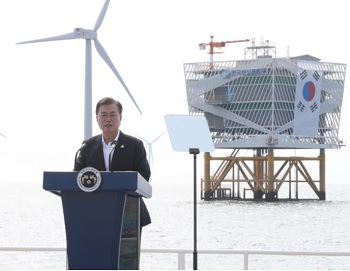
Ocean Industrialization: Can offshore wind farms coexist with fish farms?
South Korea will launch a pilot project to combine an offshore wind farm with aquaculture, as it pushes to tap the unlimited potential of water, which surrounds the country on three sides, as a future source of energy. The project, set to kick off in the second half of this year, involves a 60-megawatt wind turbine foundation installed in waters off Buan, North Jeolla Province, integrated with artificial reefs and aquaculture systems. The trial-run will last until Dec. 31, 2022. >click to read< 09:05
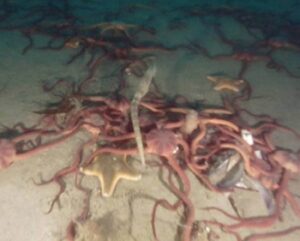
New Zealand’s largest salmon farmer rechecks results after half its farms failed to meet environmental standards
The Marlborough District Council has issued two fines and a warning after Cawthron Institute’s inspection of New Zealand King Salmon’s farms found five in nine were non-compliant. One farm in Pelorus Sound’s Forsyth Bay was even deemed “significantly non-compliant” due to pollution under its pens, caused by fish waste and uneaten fish food falling to the bed. Compliance was judged against a farm’s resource consent conditions and guidelines laid down by central and local government to encourage “environmentally responsible” aquaculture – both of which the Forsyth Bay farm breached. >click to read< 17:57
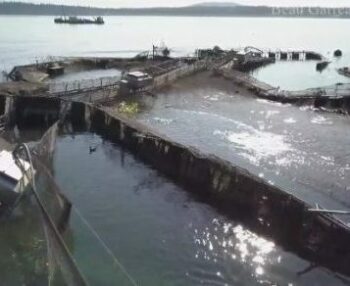
Judge hears lawsuit over fish farms in Puget Sound
Whether Cooke Aquaculture’s plan to raise native steelhead at fish farms in Puget Sound is a simple business transition or a complex threat to the marine ecosystem is being debated in King County Superior Court. Judge Johanna Bender heard testimony Thursday over Zoom in a lawsuit environment groups brought against the state Department of Fish & Wildlife for granting a permit to the seafood company to raise steelhead. “Did the department make a mistake in comparing the impacts of one type of stock to another, as opposed to comparing it to Puget Sound without fish farming at all?” she said.,, , the state Legislature passed a law that phases out Atlantic salmon net pen aquaculture by 2022 >click to read< 15:48
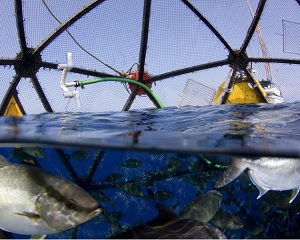
Presidential order on aquaculture draws environmental concerns over proposed fish farm, like pollution and escapements?
The federal waters of the contiguous United States are free of aquaculture farms, but a new executive order from President Donald Trump could hasten attempts by fish farm companies to take the plunge. Southwest Florida could be at the forefront of the push for more farms as a pilot program works through a permitting process. Environmental groups worry the order will greenlight offshore operations, creating concentrated sources of pollution and putting wild species at risk. The executive order on Promoting American Seafood Competitiveness and Economic Growth was signed May 7,,, Ocean Era, formerly Kampachi Farms, is waiting on permits for its pilot finfish farm, Velella Epsilon. The farm will be about 41 miles southwest of Sarasota in the Gulf of Mexico and raise 88,000 pounds of almaco jack fish each year. >click to read< 10:45
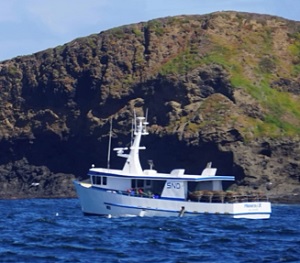
Matthew Morgan: A Change, and my presentation to the Tasmanian Legislative Council Inquiry into the Tasmanian Salmon (Finfish) industry
My name is Matthew Morgan, and I am Skipper of a Commercial Southern Rock Lobster Boat, F/V Monica is 57 feet long X 20 feet Beam x8 feet Draught. Her and I are in the Top 10% of this Fishery in Tasmania Originally my group on facebook was called Wild Fishers Against Salmon (Finfish) Farming. We were asked to change that from Against, to FOR Sustainable by a former government advisor that the former name Wild Fishers Against, would make it unlikely we would gain our access to the Minister. We Complied. >click to read< 10:19
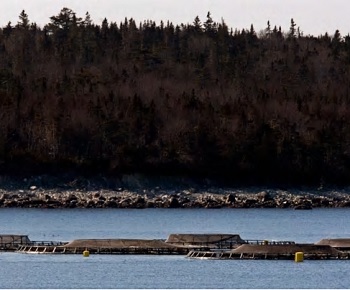
‘We don’t want fish farms here,’ says St. Marys Bay lobster fisherman
Some people who live and work on St. Marys Bay in Digby County, N.S., want their local leaders to send a strong message to an aquaculture company that’s eyeing the area for salmon farming. “It’s just a no-brainer. No, we don’t want fish farms here,” lobster fisherman Ritchie Crocker told CBC’s Information Morning during an interview from his boat on Tuesday morning. The Digby County location is one of five spots the international seafood company has been granted options to explore by the provincial government. >click to read< 20:57
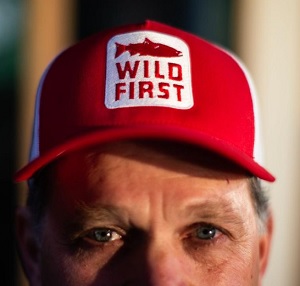
Meet the business elite who took up the fight to get fish farms out of B.C.’s water
In classic West Coast style, Allard is wearing jeans and a blue Arcteryx zip up, but it’s his red trucker hat that really stands out. It says Wild First. Allard is the president of Hearthstone Investments, a private investment firm he runs out of a small house-turned-office a block from the beach. He’s also the chairman of Wild Salmon Forever, a group of influential business-types who’ve taken a particular interest in the future of salmon farming. >click to read< 08:35
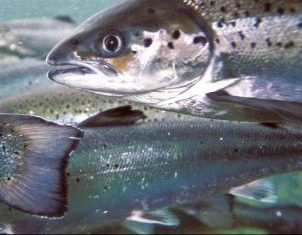
LETTER: ‘World class’ means something different in Newfoundland and Labrador. Smoke and Mirrors!
Here in Newfoundland and Labrador we routinely hear politicians and private industry speak of the “world class” qualities of whatever they are promoting. Whether it is megaprojects, various standards or qualities of whatever public or private business is involved — or just about anything it seems — our cup runs over with world class items. Here are a few examples: “The Muskrat Falls project is world class”; “The salmon aquaculture industry in Newfoundland and Labrador is world class” and recently, the new rules touted by our provincial government to regulate the aquaculture industry here are described as “surpassing the world as the place of best practise for aquaculture.” From the now six-week unfolding of the massive Fortune Bay farmed salmon die off,,, by David Downton >click to read< 09:33
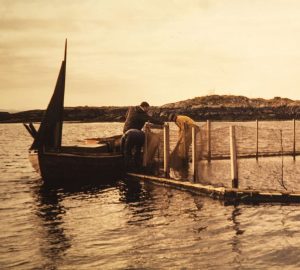
The failed ban
The coming year marks the 30th anniversary of the state of Alaska’s attempt to control world salmon markets by banning fish farming in the 49th state. It would seem an appropriate time to review what has happened since then: Farmed salmon production, a meager 271,000 tonnes per year at the time of the 1990 ban, has grown to more than 2.2 million tonnes per year – a more than eight-fold increase. Bristol Bay sockeye salmon that spent the late 1980s trading near an average, annual price of $2 per pound ($4.24 per pound in 2019 dollars, according to the federal inflation calculator) is now worth $1.35 per pound or about 32 percent of its pre-ban value , according to the Alaska Department of Fish and Game figures. >click to read< 13:00
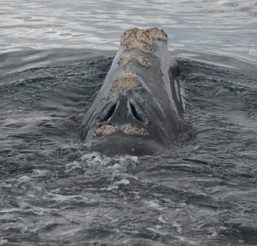
Opinion: Focus on oil industry, not lobstermen, in whale deaths
I went to the Aug. 20 meeting at NOAA regarding the lobster trap lines and the entanglement of the right whales.,, Larry Stepenuck brought up the problem of the mussel farms and their spat lines – another potential cause of whale entanglements. What! Is nobody hearing him? I think lobsterman Mike Goodwin also brought up a good point,,, It’s a gold mine out there. The big oil rigs with their seismic testing, wind farms, fish farms, mining of the ocean floor, etc., want a piece of the action, and those pesky lobstermen are raining on their parade. by Sue Waller, >click to read< 20:43
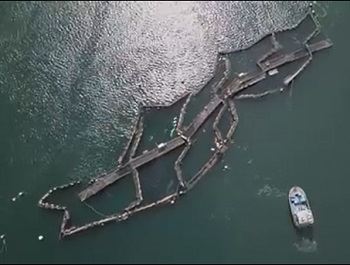
Fishy Business | New Patagonia Film ‘Artifishal’ Highlights Devastating Impact Of Fish Farms
Salmon’s delicious, isn’t it? Laid out on a bed of rice, with a drizzling of teriyaki sauce over the top, yeah it’s making you drool just thinking about it. But, and we hate to be a buzzkill on you like this, have you ever stopped to consider where your salmon’s coming from? Or for that matter, where loads of that tasty-looking fish you see in your supermarket originates? These are the questions that sit at the very heart of Patagonia‘s new film ‘Artifishal’. Produced by the Patagonia founder, and big-cheese, Yvon Chouinard himself, the documentary looks to address wild fish, wild rivers, and the habitat destruction that’s come as a result of fish farms and fish hatcheries. Video trailer, >click to read<11:34
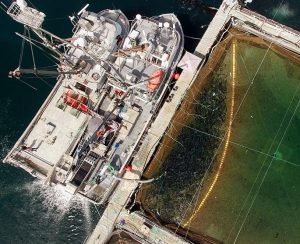
Plan to Close Fish Farms on Salmon Migration Routes a ‘Step in Right Direction’
After months of negotiation, the province and the ’Namgis, Kwikwasut’inuxw Haxwa’mis and Mamalilikulla First Nations announced an agreement to remove some fish farms in the Broughton Archipelago on northern Vancouver Island’s east coast. But both industry and government “have a long way to go to really protect wild salmon,” says Alexandra Morton, a biologist and vocal critic of the foreign-owned fish farm industry. The plan, announced Friday, also gives First Nations more control over the monitoring of fish diseases. Both Marine Harvest, a Norwegian firm, and Cermaq, a Norwegian-run subsidiary of Mitsubishi, have agreed to the plan and foresee no impact on jobs. >click to read<17:34
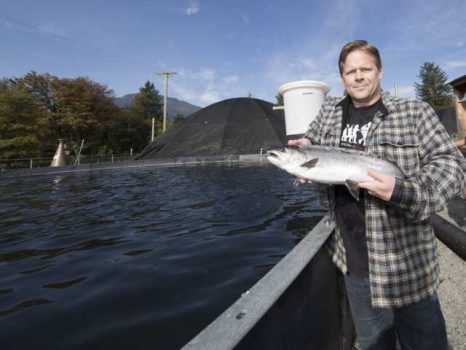
Growing pains as companies try to move fish farms from ocean to land
Each time the food dispenser starts up at Golden Eagle Aquaculture, the water boils with supple, perfect coho salmon. They are Ocean Wise recommended and a Seafood Watch green light best choice — a conservationist’s dream. The flesh is invitingly red, delicious and rich in omega-3s. Land-based tanks are dimly lit to simulate winter light levels in order to trick the fish into growing faster, while delaying sexual maturity. It is one of many tricks needed to grow salmon outside the ocean, its natural environment. >click to read<17:20
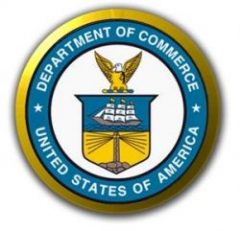
Alaskans worried by prospect of deep-sea fish farms
In a Centennial Hall listening session, Alaskans raised concerns about federal plans to boost open-ocean fish farms under a new strategic plan for the U.S. Department of Commerce. On Friday afternoon, Tim Gallaudet, acting undersecretary of commerce for oceans and atmosphere, hosted a listening session at the end of a weeklong gathering of National Oceanic and Atmospheric Administration experts in Juneau. NOAA is an agency of the Department of Commerce, and Gallaudet is among the figures hosting meetings across the country as part of the process that creates the strategic plan.,, Chris Oliver, assistant administrator for NOAA Fisheries and former director of the North Pacific Fishery Management Council, said concerns about aquaculture are somewhat misplaced. >click to read<09:00
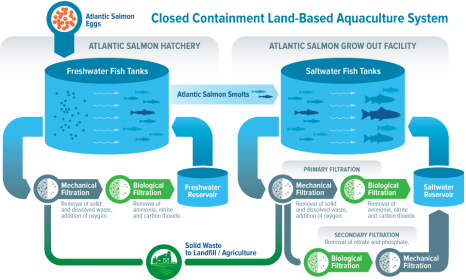
‘They are still using the ocean as a toilet’: NDP Fisheries critic proposes removing fish farms from oceans
The federal NDP critic for Fisheries and Oceans is proposing legislation that would overhaul fish farming by moving open-net fish farms from the ocean to land in an effort to stabilize and grow dwindling wild sockeye salmon numbers. “The impact to wild salmon has been a huge concern,” MP Fin Donnelly said to All Points West host Jason D’Souza. “I want to see healthy watersheds, healthy fish populations.” Reports have shown that wild sockeye salmon that come into contact with fish farms are more likely to be introduced to a number of problems, including parasitic sea lice — which attach themselves to the fish, weakening and sometimes killing them — and the piscine reovirus (PRV). >click to read<15:06
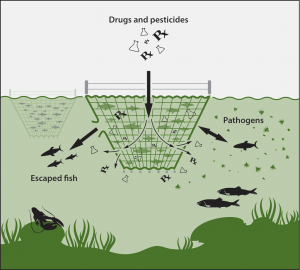
Pesticides Contaminate Fish Farms, Lawsuit in Canada moves forward
Northern Harvest Sea Farms, an ocean-based fish farm in New Brunswick, Canada, was scheduled to appear in court yesterday to answer legal charges stemming from the off-label use of an unnamed pesticide added to its operations to combat severe sea lice outbreaks. The company holds nine licenses for farmed Atlantic salmon cages on the Bay of Fundy, as well as for fish farms off the Newfoundland coast. Sea lice outbreaks are a common at over-crowded, ocean-based fish farms because such facilities afford the optimum conditions for rapidly reproducing and spreading lice. In response, some companies have turned to using illegal and off-label pesticide applications to stave off the problem, which causes huge farmed salmon kills.>click to read< 09:37
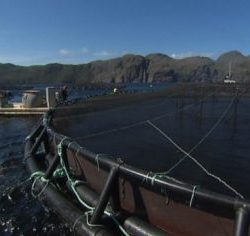
Audit finds Canada’s federal government fumbling on fish farms
The federal government is fumbling the management of fish farms, while failing to enforce rules and manage risks of infectious diseases, parasites, drugs and pesticides that cause damage to wild fish, says a scathing audit released on Tuesday. The audit was one of three reports tabled on Tuesday in the House of Commons by Julie Gelfand, Canada’s commissioner of the environment and sustainable development. It sounds alarms about Canada’s fish farms on Canada’s coasts while questioning the effectiveness of about $30 million in annual government spending to oversee the $1-billion industry. >click to read<11:47
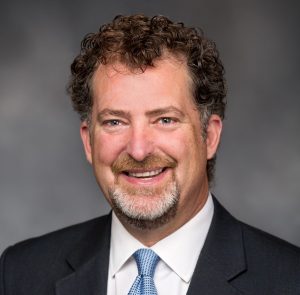
Washington senator wants B.C. to follow suit and phase out net-pen fish farms
A Washington senator says he wants to see British Columbia join the state in phasing out ocean-based Atlantic salmon farms when the province decides whether to renew farm leases in June. An American ban will be less effective in the shared ecosystem of the Salish Sea if fish farms continue to operate in Canadian waters, said Democrat Sen. Kevin Ranker. The Washington state senate and house of representatives have recently passed bills that would phase out net-pen farms when their leases come up for renewal over the next seven years. >click to read<14:06
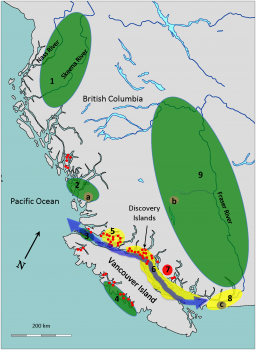
New research shows wild salmon exposed to fish farms have ‘much higher’ rate of disease
Wild salmon exposed to open-net fish farms are much more likely to be infected with piscine reovirus (PRV) than those that don’t have that contact, a new study has concluded. The data also show that the virus makes it more difficult for wild salmon to swim upstream to their spawning grounds, which has major implications for the sustainability of the populations. “The government has to remove this industry from the key salmon migration routes or we risk the complete loss of wild salmon in this province,” said Alexandra Morton, lead author on the report and an outspoken advocate for wild salmon. click here to read the story 18:07
The effect of exposure to farmed salmon on piscine orthoreovirus infection and fitness in wild Pacific salmon in British Columbia, Canada – click here to read the study
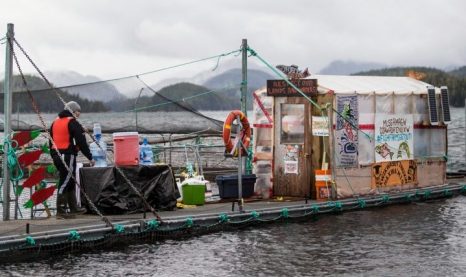
B.C. fish farms: a tangled net
Industrial fish farming began in British Columbia with a few small experiments in the 1970s. By the 1990s, it was operating like a well-oiled machine: Smaller farms had been swallowed by large conglomerates, and imported Atlantic salmon had become the preferred breed — the Herefords of aquaculture.,,, So, are fish farms bad? Federal research scientist Kristi Miller says she understands the frustration of not having a definitive answer. click here to read the story 09:43
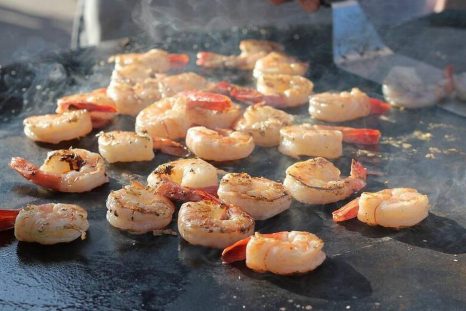
Report: Imported seafood often contains dangerous drugs
In 2015, about 90 percent of seafood consumed in the U.S. was imported from overseas, and about half of that comes from fish farms, according to the National Oceanic and Atmospheric Administration. The recent analysis released by the U.S. General Accountability Office found that some fish imported from other countries, including China, India and Vietnam, contain high levels of drug residue, yet few samples are ever tested. click here to read the story 12:04

































